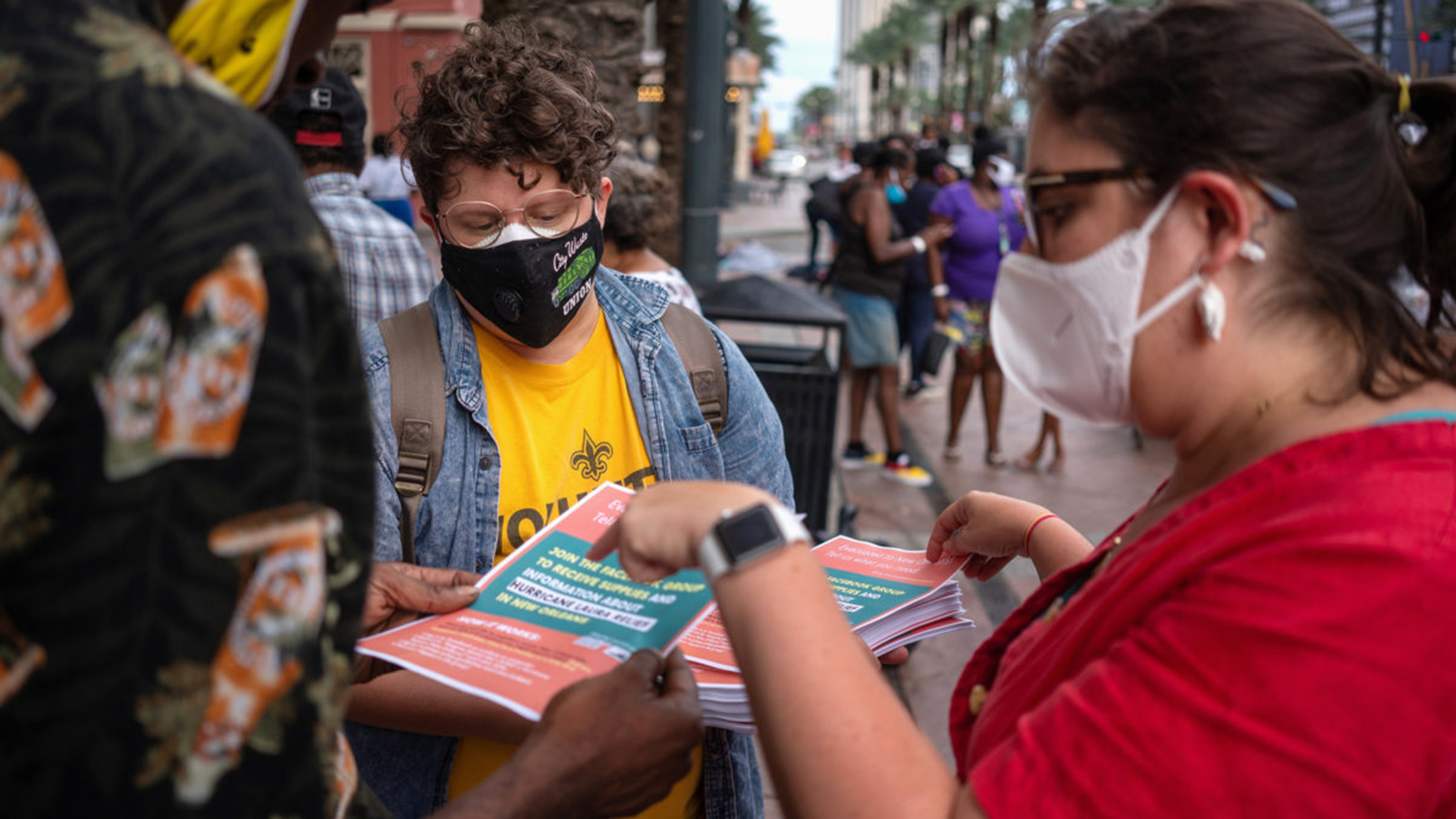Giving, receiving and ‘mutual aid’ in the PBS Wisconsin Voices collection
Most people understand the winter holidays as a time devoted to giving, receiving, fellowship and community.
12/23/24
Most people understand the winter holidays as a time devoted to giving, receiving, fellowship and community.
12/23/24
Most people understand the winter holidays as a time devoted to giving, receiving, fellowship and community. These things connect and fortify us, especially in the darker months of the year as we slowly march toward the welcome light of spring. Giving — as an idea, a practice and, for some, a moral imperative — manifests in a variety of ways in our society. One important and historical means of giving at the community level is through the framework of “mutual aid.”
What is “mutual aid”? Mutual aid is not “charity,” but a model of community care driven by an egalitarian and “no strings attached” approach to offering help to one another. Mutual aid groups collectively coordinate efforts at the hyper-local level to provide services like food banks, cash assistance, housing, free ride sharing, prison letter-writing campaigns, disaster relief, collective hardship funds for those who find themselves without work and even forms of health care.
What makes mutual aid different from charity and individual giving is its ideological commitment to solidarity and to the erasure of any hierarchy or power held by the giver “over” the receiver. Mutual aid networks operate with an awareness that the systems which claim responsibility for care and public service like local, state and federal governments too often fail to meet their mandate, particularly for the most marginalized groups in our society.
While mutual aid groups proliferate across our communities today, they also have historical roots in the organizing, activism and self-help of BIPOC and LGBTQIA+ people. Explore the following PBS streaming programs and resources found in our PBS Wisconsin Diverse Voices collection to learn more about the transformative work of mutual aid.
In this short segment from the 2016 Independent Lens documentary, The Black Panthers: Vanguard of the Revolution, directed by Stanley Nelson, learn about how the Black Panthers provided a blueprint for self help and mutual aid during the Civil Rights era with a heralded free breakfast program that served 20,000 meals a week to Black schoolchildren in 19 different communities. Dive further into the often misunderstood legacy of the Black Panthers in this in-depth 2024 “Hidden Histories” segment from PBS News Hour.
Host KJ Kearney from PBS Digital Studios’ Citizen Better visits Harlem’s Closet and Mercantile & Community Activist, two businesses in South Carolina with substantial mutual aid initiatives. Harlem’s Closet conducts regular school supply and community toy drives, and Mercantile & Community Activist maintains the Rock Hill Community Fridge offering food to anyone who needs it. Kearney also introduces us to Philadelphia’s Free African Society, one of the first examples of mutual aid dating to the 1700s, as well as the myriad mutual aid networks that formed during the COVID-19 pandemic.
In 2021, the PBS documentary series Reel South produced Comida Pa’ Los Pobres (Food for the Poor), which follows Giovanni, a young Puerto Rican activist, as he confronts the island’s persistent crisis of food insecurity. Motivated by his childhood struggle with hunger, he seeks to inspire his fellow citizens to join a movement of solidarity-oriented work by feeding families and college students through mutual aid efforts – all while facing challenges from local authorities.
Independent Lens Bridge Builders is a series of short documentaries highlighting changemakers and their communities, collectively crafting a picture of the reform landscape nationwide. This documentary short profiles Community Aid Network, a Minneapolis-based mutual aid collective formed in August 2020 to address the immediate needs of underserved communities suffering from the twin pandemics of COVID-19 and systemic racism. They build bonds between neighbors, organize volunteers and redistribute resources.

PBS News Hour has covered mutual aid initiatives around the country as part of ongoing reporting initiatives. Explore their round-up of articles on how the COVID-19 pandemic activated commitments to mutual aid in diverse communities.
What do you think?
I would love to get your thoughts, suggestions, and questions in the comments below. Thanks for sharing!
Sigrid Peterson